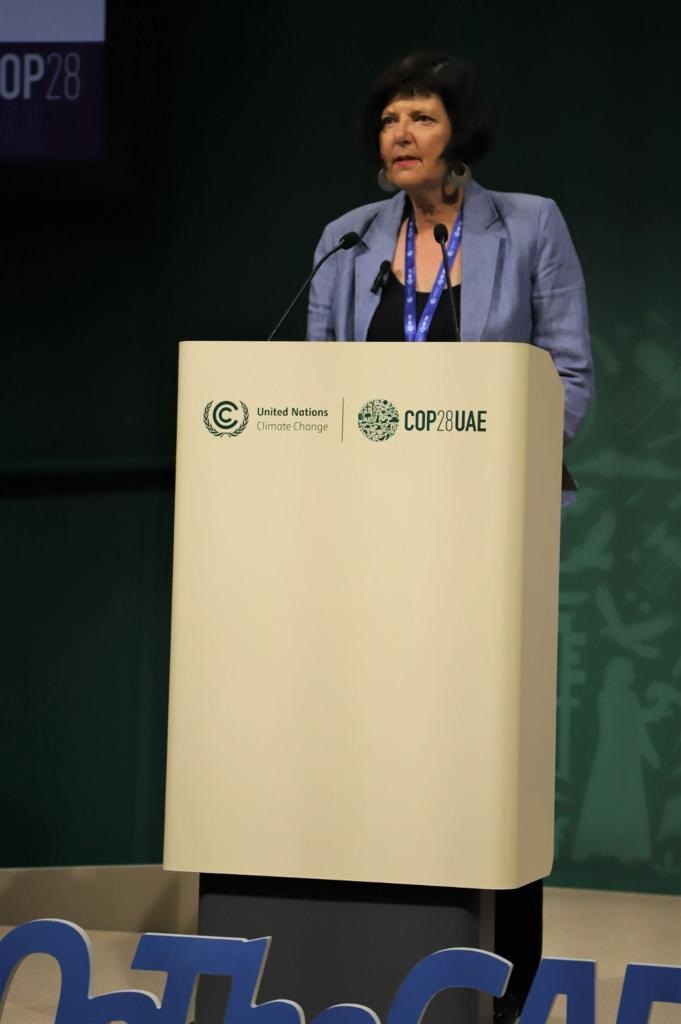
South Africa’s energy transition plan will require initial funding of R1.5 trillion in the first five years.
Forestry, Fisheries and Environment Minister Barbara Creecy launched South Africa’s Just Energy Transition Investment Plan (JET IP) for the period 2023–2027 at the COP28 in Dubai on Monday. The plan charts the path the country will follow to achieve low-carbon but resilient economic growth, which demands a transition from fossil fuels, such as coal, largely mined in Mpumalanga, to fuel Eskom’s power stations.
Creecy said the plan was based on justice, adding:
“The Global South and the African continent, in particular, contributed less than two percent to the accumulation of gas emissions that are creating the current crisis.”
READ: COP28: Private sector-driven green energy industries can unlock trillions for African economies
The JET IP is premised on South Africa’s National Development Plan 2030. It focuses on tackling the country’s systemic challenges of poverty, inequality and unemployment. It also sees an opportunity for the country to drive green industrial development, innovation and economic diversification.
The governments of France, Germany, the United Kingdom, the United States and the European Union, collectively known as the International Partners Group (IPG), have contributed R128 billion (US$8.5 billion) to the overall R1.5 trillion presented in this JET IP.
South Africa has committed to reducing its emissions to within a range of 420-350 megatons of carbon dioxide equivalent (MtCO2-eq) by 2030.
According to the JET IP, the priority sectors identified for investment include electricity, new energy vehicles and green hydrogen.
READ: COP28: Creecy calls for unhindered access to climate change mitigation technologies
In the next five years, R711.4 billion will be needed in the electricity sector, R128.1 billion for electric vehicles, green hydrogen (R319 billion), skills development (R2.7 billion) and municipal capacity (R319.1 billion).
The document indicates that South Africa’s just energy transition will be a managed, phased, long-term process of economic, social, and environmental change. It will involve multi-year, multi-sectoral and multi-jurisdictional initiatives with many stakeholders.
South Africa is one of the most carbon-intensive developing economies in the world, emitting 0.6kg of carbon dioxide per dollar of gross domestic product. The country is the largest carbon emitter of pollution in Africa, driving 40% of the continent’s total emissions.
The report warns that South Africa faces an economic risk because of the degree of carbon emission embedded in its commodities and products.
READ: Climate change hits poor countries' GDP
“In addition to the substantive transition risks associated with decarbonising the coal sector,” the report says, “South Africa’s trade systems are vulnerable because of the degree of carbon embedded in its commodities and products. Where trading partners are accelerating efforts to decarbonise, this directly affects demand for South African commodities, impacting the balance of payments and competitiveness.”
It is estimated that US$50 billion is the value at risk for the South African economy arising from the energy transition.




 Publications
Publications
 Partners
Partners









